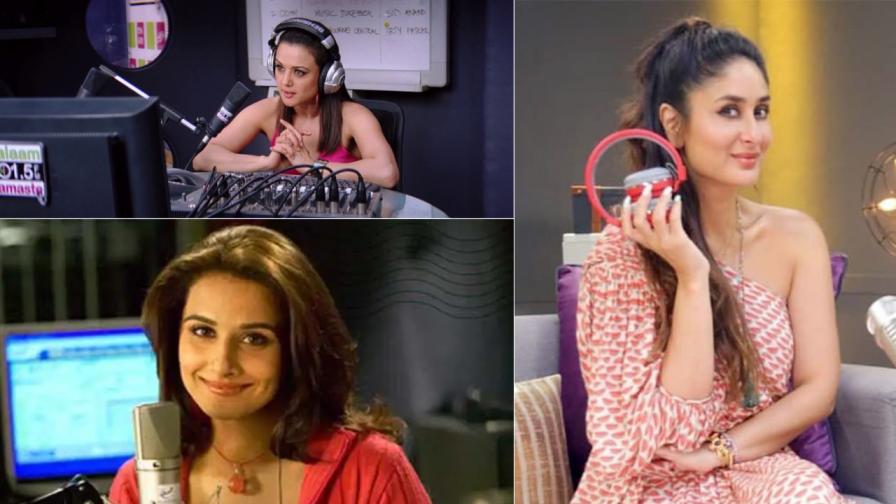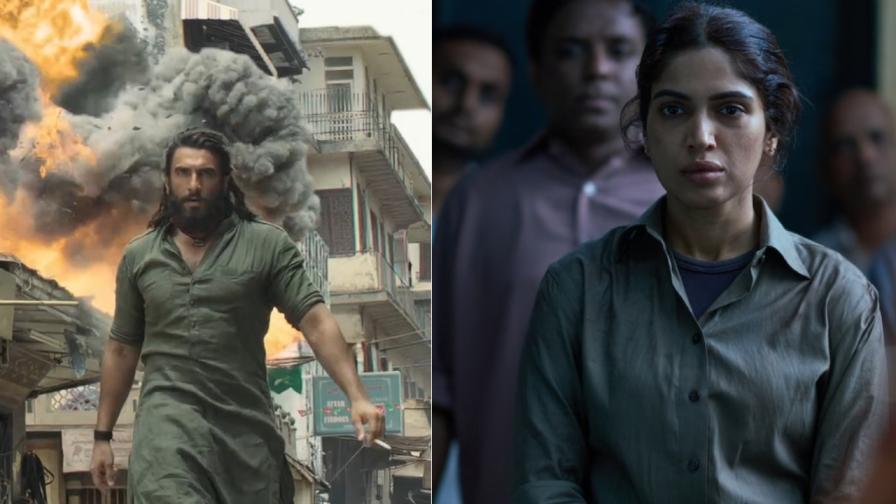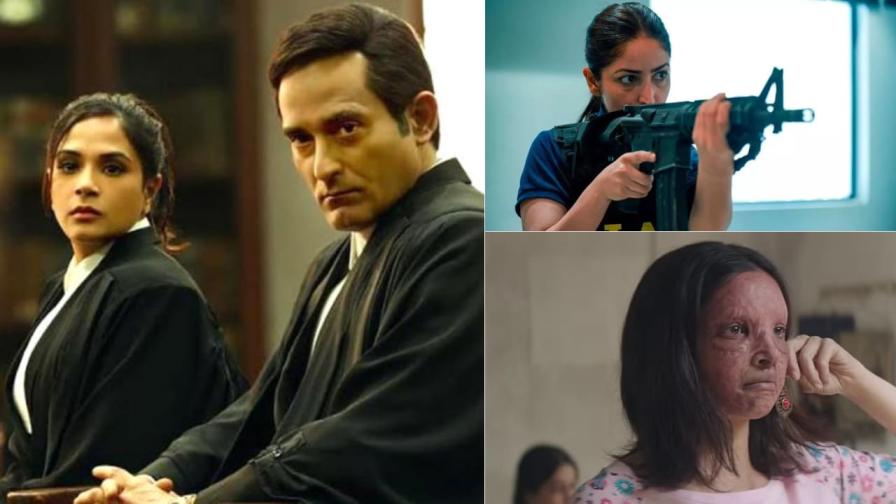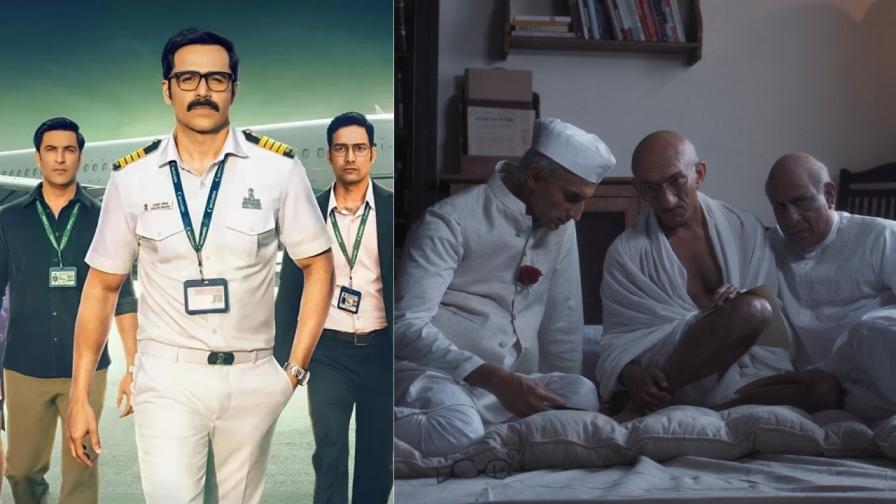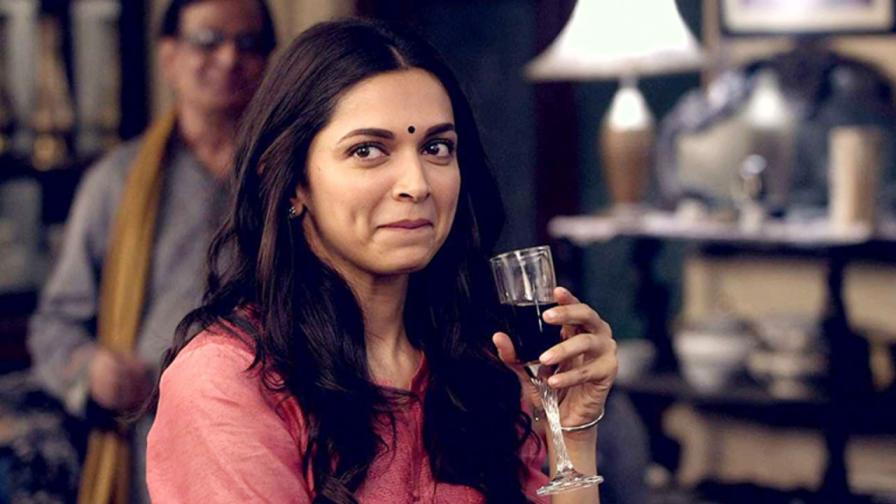
Laapata Ladies was recently submitted for consideration to the Oscars. The film gives a powerful message about feminism in the context of rural India. If you loved the film, here are 5 other Bollywood films that touch upon an important yet less discussed topic, feminism. Each of these films addresses feminism in unique ways, highlighting different struggles women face, from domestic violence and consent to self-worth, identity, and societal expectations. They are critical in reshaping Bollywood’s narratives around women, offering stories of empowerment, resilience, and resistance against patriarchy.

1. Pink (2016)
"Pink" is a courtroom drama that revolves around three young women—Minal (Taapsee Pannu), Falak, and Andrea—who are accused of attempted murder by a well-connected man. The film's central theme is about sexual consent, where the defence lawyer (Amitabh Bachchan) challenges patriarchal assumptions around women's behaviour, especially when it comes to the victim-blaming and character assassination faced by women in sexual harassment cases.Feminist Themes:
- Consent and Agency: The film highlights that "No means No," emphasising that a woman's refusal is absolute, regardless of her circumstances, dress, or social behaviour.
- Victim Blaming: The film challenges the societal norms that tend to blame women for violence or harassment inflicted on them.
- Breaking Stereotypes: Through its courtroom sequences, "Pink" tackles deeply ingrained stereotypes about women who drink, party, or live independently, showing that these choices don't invalidate their right to respect and safety.

2. Mom (2017)
"Mom" is a revenge drama that follows the story of Devki (Sridevi), a mother whose stepdaughter Arya is sexually assaulted. When the legal system fails to provide justice, Devki takes matters into her own hands, seeking revenge against the perpetrators.Feminist Themes:
- Motherhood and Empowerment: Sridevi’s character portrays a strong mother who doesn't accept the limitations placed on women by the legal system. Her empowerment comes through her undying resolve to avenge her daughter, symbolising women's fight against the system when it fails them. Sridevi's portrayal in "Mom" resonates with the idea of feminism, where women are not just seen as nurturers, but also as forces capable of taking direct action against injustice.
- Injustice and Patriarchy: The film points out the flaws in the justice system, which often victimises women twice—once by the crime and again by the legal process. Devki's actions reflect the frustration many women feel in a male-dominated society that refuses to protect them.
- Morality and Revenge: Although "Mom" is a revenge thriller, its feminist elements lie in its depiction of a woman taking control and defying societal expectations about passive motherhood.

3. English Vinglish (2012)
In "English Vinglish," Sridevi plays Shashi, a traditional Indian housewife who struggles with her lack of fluency in English. When she travels to the U.S. for her niece's wedding, she enrols in an English class, discovering her self-worth and independence along the way.
Though not an overtly political or dramatic feminist film, "English Vinglish" subtly champions the idea of personal empowerment, self-worth, and respect, especially for housewives whose contributions are often undervalued.
Feminist Themes:
- Self-Respect and Identity: The film's feminist angle comes from Shashi's journey of self-discovery. She begins as a woman who is belittled by her own family for her inability to speak English, but through her language learning process, she gains self-respect and a sense of identity.
- Breaking Gender Roles: Shashi’s story is relatable to millions of women who are often confined to traditional roles as wives and mothers. The film questions the idea that a woman’s worth is limited to these roles, advocating for women’s right to personal growth and self-fulfilment.
- Empowerment through Education: The act of learning a new language becomes symbolic of Shashi reclaiming her confidence and voice in a world that had previously undermined her.

4. Piku (2015)
"Piku" tells the story of Piku (Deepika Padukone), a young woman who balances her demanding career as an architect with the responsibility of taking care of her ageing, hypochondriac father (Amitabh Bachchan). The film explores the father-daughter relationship while touching on broader social themes.
"Piku" is a quiet but strong portrayal of feminism where the female lead is not defined by her relationships with men but by her individuality, choices, and ability to navigate life on her terms.
Feminist Themes:
- Women’s Independence: Piku is a modern, independent woman who is unapologetic about her career, her relationships, and her lifestyle choices. She defies traditional gender roles by not conforming to society's expectations of marriage and family life.
- Caregiver’s Burden: The film also portrays the emotional and physical labour women often undertake in caring for ageing parents, which is usually expected of women more than men.
- Complex Female Characters: Piku is not depicted as an idealised woman but as a flawed, real character. Her independence and assertiveness in managing her personal and professional life make her an empowering figure for viewers.
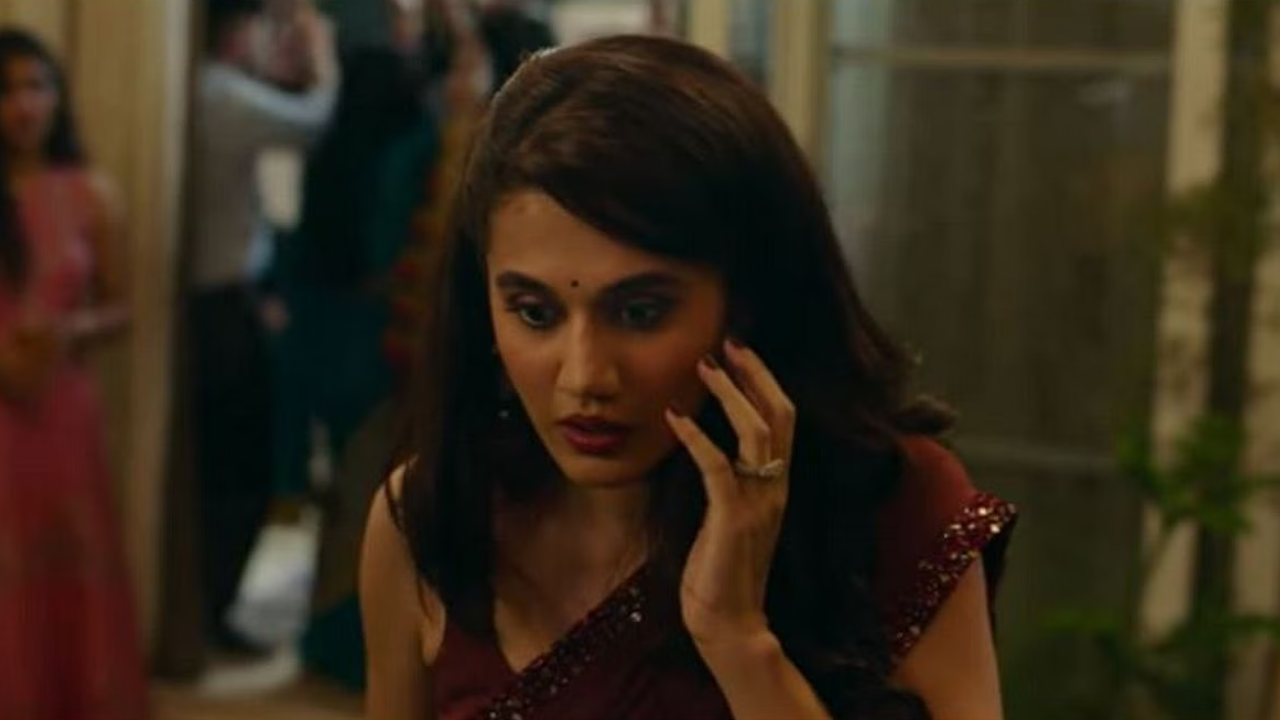
5. Thappad (2020)
"Thappad" follows Amrita (Taapsee Pannu), a housewife whose life changes when her husband slaps her in public during a party. This seemingly "minor" incident triggers her to reassess her marriage and her role in the relationship, ultimately leading her to seek a divorce.Feminist Themes:
- Respect and Dignity: The core feminist message of "Thappad" revolves around the idea that any form of abuse, no matter how seemingly small, is unacceptable. The slap becomes a metaphor for all the subtle ways women are conditioned to tolerate disrespect in relationships.
- Breaking the Cycle of Acceptance: The film criticises the societal conditioning that tells women to endure humiliation and compromise for the sake of maintaining relationships, particularly marriages.
- Questioning Patriarchy: "Thappad" challenges the patriarchal notions that normalise male aggression and the expectation that women should forgive and move on. The film stands as a powerful critique of the cultural pressure on women to prioritise marriage and family over their own dignity and self-respect.
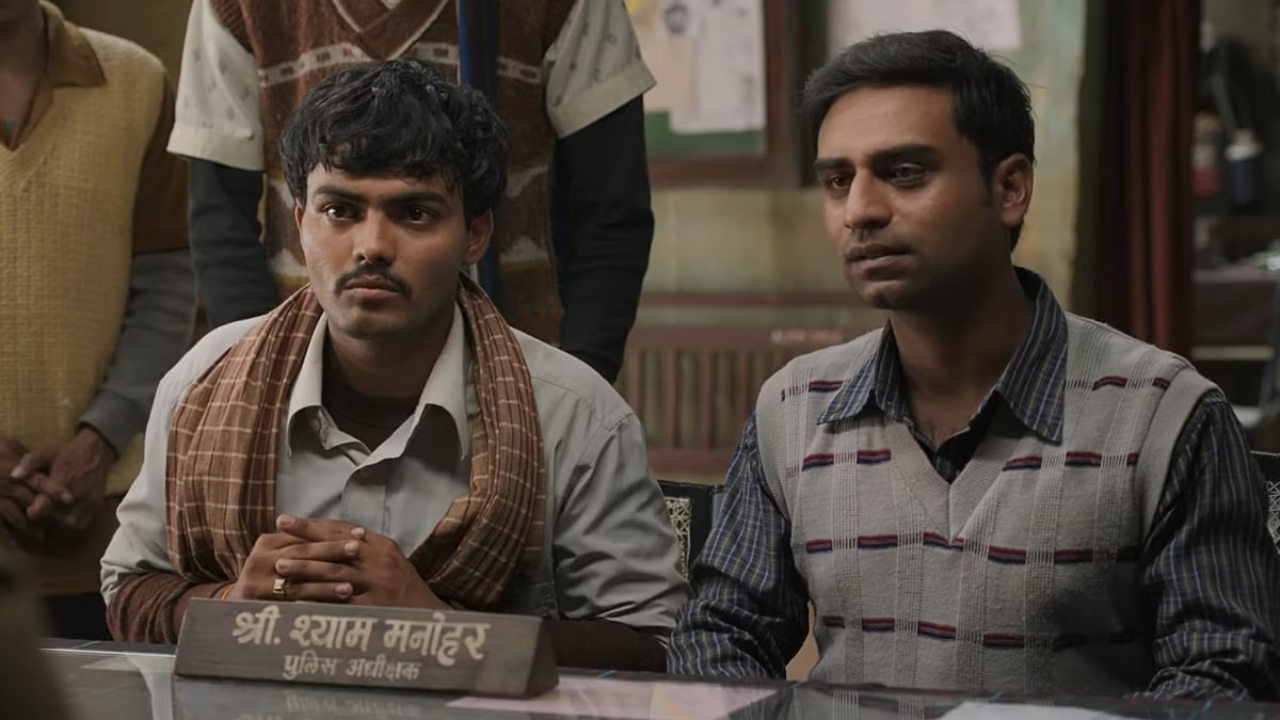
6. Laapataa Ladies (2023)
Set in rural India in 2001, "Laapataa Ladies" is a comedic yet socially poignant film that follows the story of two newlywed women who go missing during a train journey. The film explores their unexpected disappearance and the chaos it brings, as well as how it upends the traditional dynamics of their families and society.Feminist Themes:
- Women as Individuals, Not Property: The disappearance of the two women throws light on how they are often viewed as dependents or property of their husbands and families, especially in rural and patriarchal settings. The search for them becomes symbolic of reclaiming their individuality and agency.
- Questioning Gender Roles: The film questions the rigid societal norms imposed on women, especially in rural India, where they are expected to conform to domestic roles immediately after marriage. The disappearance provides these women with a rare opportunity to experience life outside of these confines.
- Freedom and Choice: Though told with humour, the film subtly addresses the issue of women's autonomy. In their brief "freedom" from societal expectations, the women begin to confront their desires, aspirations, and sense of self-worth.
- Marriage and Social Expectations: Similar to "Thappad" and "Piku," this film examines how women are often forced into marriage and expected to adapt to the roles of wife and daughter-in-law without considering their personal ambitions or preferences.






